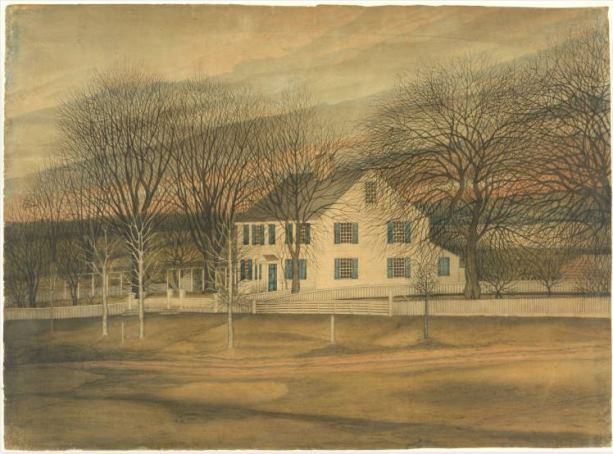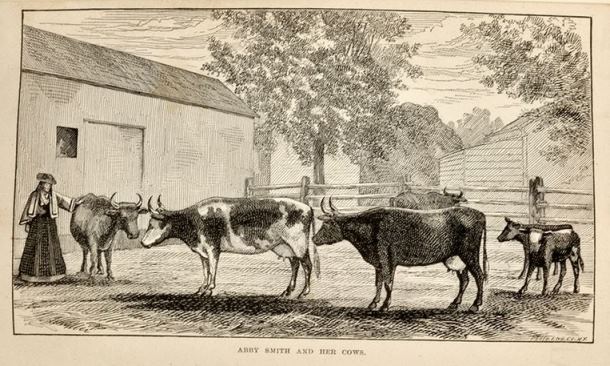On January 8, 1874, seven cows belonging to Abigail and Julia Smith headed down Glastonbury’s Main Street to the auction block. The cows—Jessie, Daisy, Proxy, Minnie, Bessie, Whitey, and Lily—were seized by tax collector George C. Andrews and auctioned for payment of property taxes amounting to $101.39.
The seizure came about thanks to a sudden increase in the property tax levied on the Smith sisters. When the sisters complained to authorities, they received notice that the assessor had the power to raise and lower taxes as he saw fit. The increase levied on the Smith sisters mirrored new higher taxes charged to a number of local unmarried women. These increases did not, however, affect most local men. Without representation at town meetings or the right to vote, it seemed these women had little choice but to submit to the escalated financial burdens.
The Smith sisters, however, having attended Isabella Beecher Hooker’s suffrage convention in Hartford in 1869, launched a public campaign against the tax and lobbied for their right to speak in town meetings. Isabella Beecher Hooker herself contributed to a defense fund for the elderly sisters and they filed a suit against George Andrews. The subsequent court cases became a national story, compared in the media to the Boston Tea Party. Ultimately, in 1876, down to their last two cows (named Taxey and Votey), the sisters prevailed. Isabella Beecher Hooker credited the sisters with striking a blow for equal rights and observed, “Abby Smith and her cows are marching on like John Brown’s soul.”










